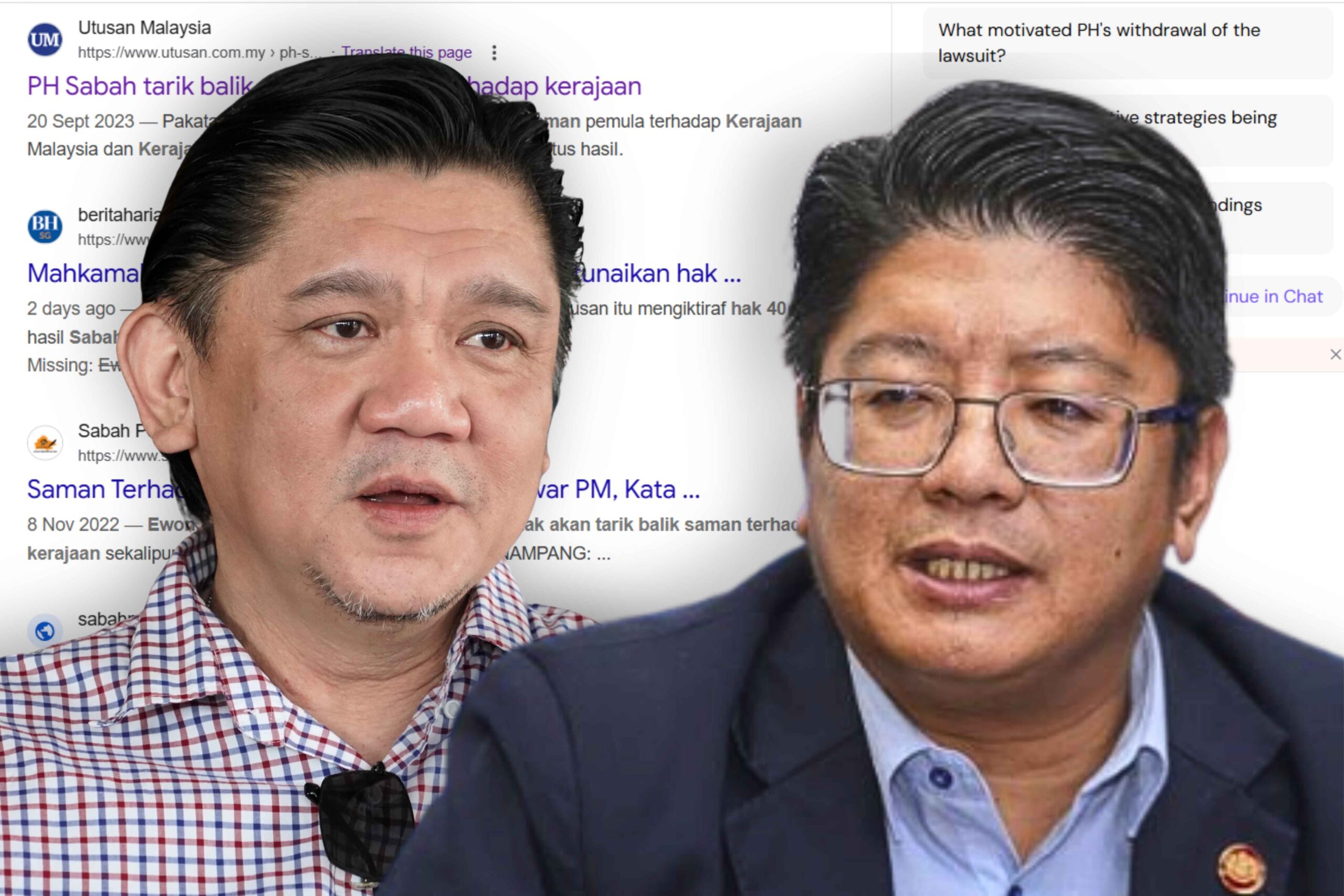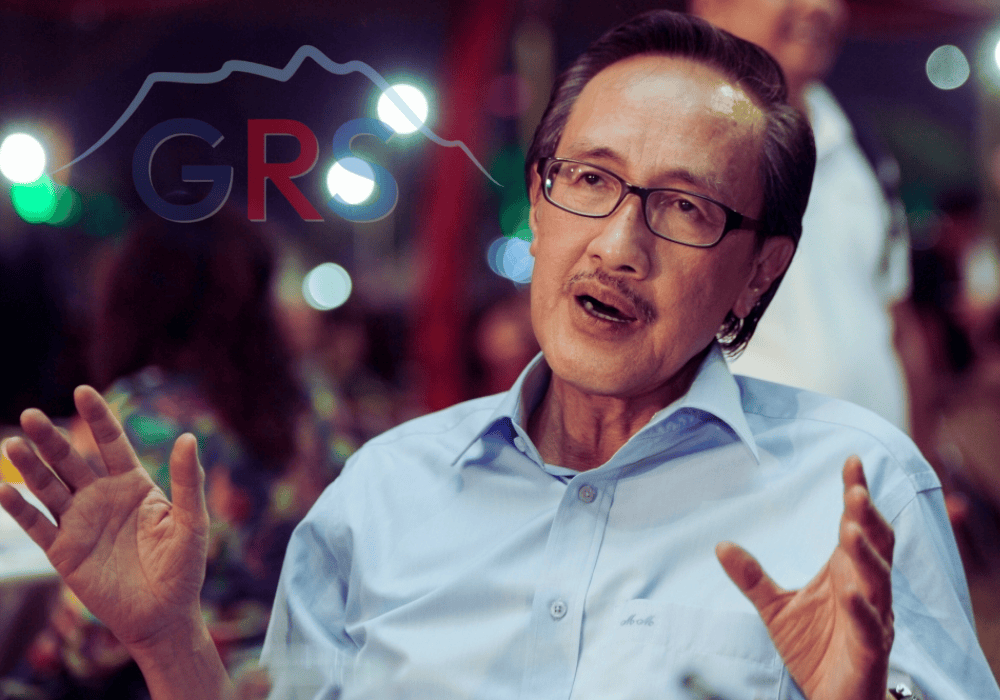KOTA KINABALU: Parti Solidariti Tanahairku (STAR) Deputy President Datuk Kenny Chua has asserted that it is too late for United Progressive Kinabalu Organisation (UPKO) to win back the trust of Sabahans following its decision to withdraw a lawsuit against the federal government concerning Sabah’s entitlement to 40% of revenue derived from the state.
The statement comes amid Upko’s call for its president, Datuk Ewon Benedick, to resign from the Cabinet if the Attorney-General’s Chambers (AGC) files an appeal against the Kota Kinabalu High Court ruling that affirmed Sabah’s right to the substantial revenue share.
This call was made during UPKO’s division convention today, with UPKO Penampang led by Donald Peter Mojuntin, passing a resolution supporting the High Court’s judgment in a judicial review initiated by the Sabah Law Society (SLS).
However, Chua dismissed Upko’s recent stance as a desperate attempt to regain political footing among Sabahans.
“The people are determined to punish UPKO because it withdrew its lawsuit against the government, effectively abandoning Sabah’s fight for its rightful revenue share,” Chua said in a statement.
He added that the party’s actions have left a lasting impression of insincerity, making any attempt at damage control futile.
“It is too late for Upko now. Sabahans see through their claims and will hold them accountable for their failure to stand firm on Sabah’s rights,” Chua stressed.
Chua recalled that on 3 June 2022, Ewon and the Members of Parliament and State Assemblymen of Pakatan Harapan Sabah filed a lawsuit seeking a court order for the Federal Government to make payments of federal revenue to Sabah at the rate of 40%, as stipulated in Article 112 of the Federal Constitution.
In a press conference on 8 November 2022, Ewon assured the public by saying they will not withdraw the lawsuit that they filed at the High Court on 3 June 2020, saying: “I, along with 10 other Pakatan Harapan Sabah representatives, filed this lawsuit, and we will not withdraw it even if Anwar becomes Prime Minister after Pakatan Harapan forms the federal government.”
However, on 20 September 2023, twelve Pakatan Harapan (PH) representatives from Sabah withdrew the originating summons (OS) seeking a court order for the Federal Government to acknowledge and grant Sabah’s constitutional rights.
Other than Ewon, they were Datuk Wilfred Madius Tangau (Member of Parliament for Tuaran), Chan Foong Hin (Member of Parliament for Kota Kinabalu), Vivian Wong (Member of Parliament for Sandakan), Senator Noorita Sual, Datuk Frankie Poon (State Assemblyman for Tanjung Papat), Datuk Christina Liew (State Assemblyman for Api-Api), Phoong Jin Zhe (State Assemblyman for Luyang), Jannie Lasimbang (State Assemblyman for Kapayan), Peto Galim (State Assemblyman for Inanam), Tan Lee Fatt (State Assemblyman for Likas), and Awang Hussaini Sahari (former Member of Parliament for Putatan).
“Sabahans will always remember their names,” said Chua.
The dispute over Sabah’s 40% revenue entitlement remains a sensitive and contentious issue, underscoring the ongoing struggle between Sabah and the federal government over resource rights and fiscal autonomy.
He further highlighted the growing dissatisfaction among Sabahans over UPKO’s alignment with Pakatan Harapan (PH) from Peninsular Malaysia.
“Many Sabahans are not in favour of UPKO aligning with Pakatan Harapan from Malaya. The voice of Sabahans demands not only the return of our rights from the federal government but also the restoration of our political power.
“Everywhere you go, we can hear people talking about local party rule. They want the entire Sabah to go solo in the coming election. All this comes from the heart of the people. Upko has failed to listen to what’s inside their heart. They’re disconnected from the people because of their alignment with PH. People will punish them,” Chua said.
The 40% revenue entitlement case has been a focal point of ongoing tensions between Sabah and the federal government. The state has long demanded a fairer share of revenues derived from its natural resources, a demand rooted in the Malaysia Agreement 1963 which laid the foundation for Sabah’s entry into Malaysia with specific guarantees of autonomy and fiscal rights.
The Sabah Law Society’s judicial review and subsequent High Court ruling has rekindled public debate on these historic rights, putting pressure on Putrajaya to honour the court’s decision.
Chua warned that political parties seen as compromising Sabah’s interests, especially those closely tied to Peninsular-based coalitions, risk alienation from their grassroots support.
“Sabahans are increasingly vocal about wanting local leaders who understand and prioritise Sabah’s unique needs. This is not just about revenue; it’s about political sovereignty and self-determination,” he said.





